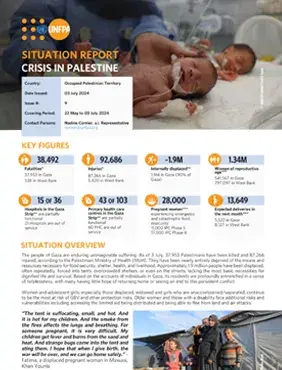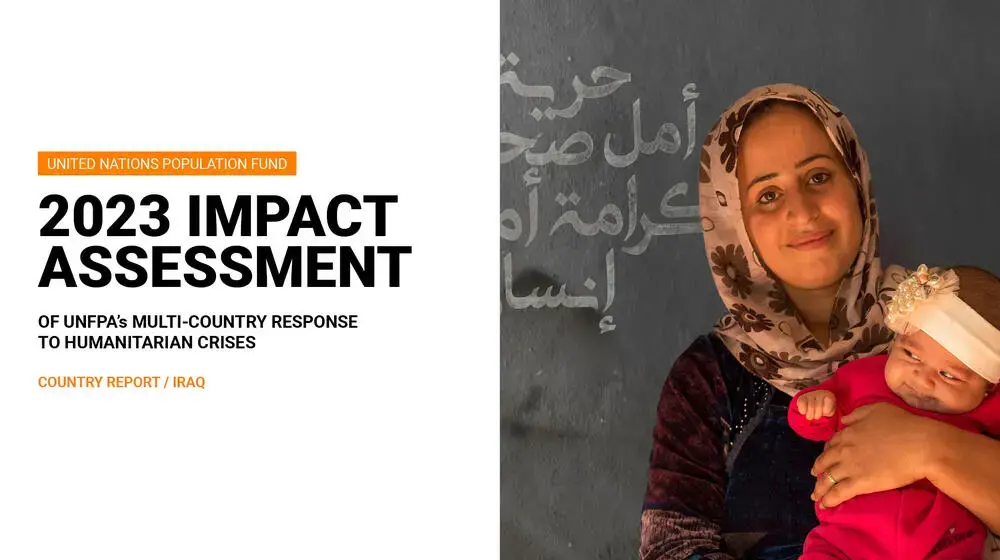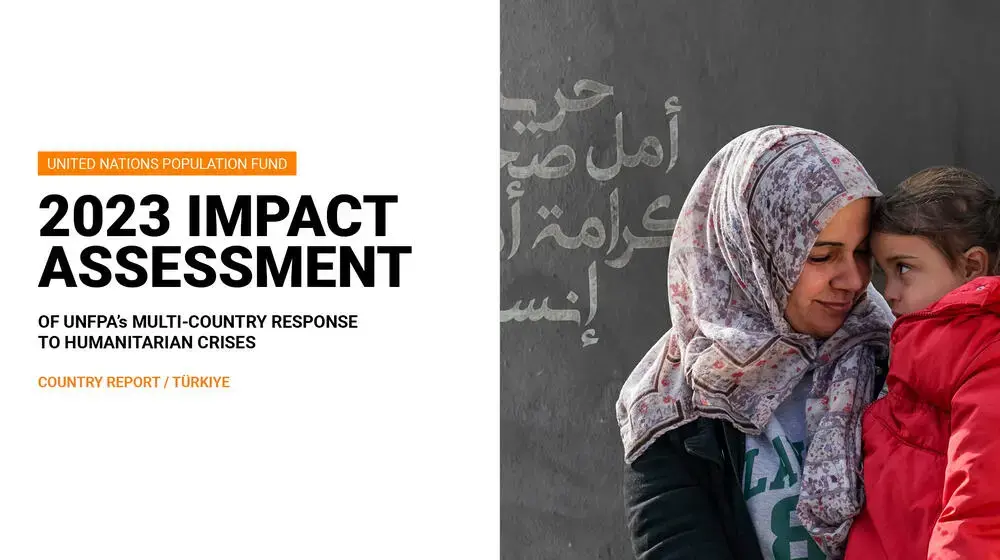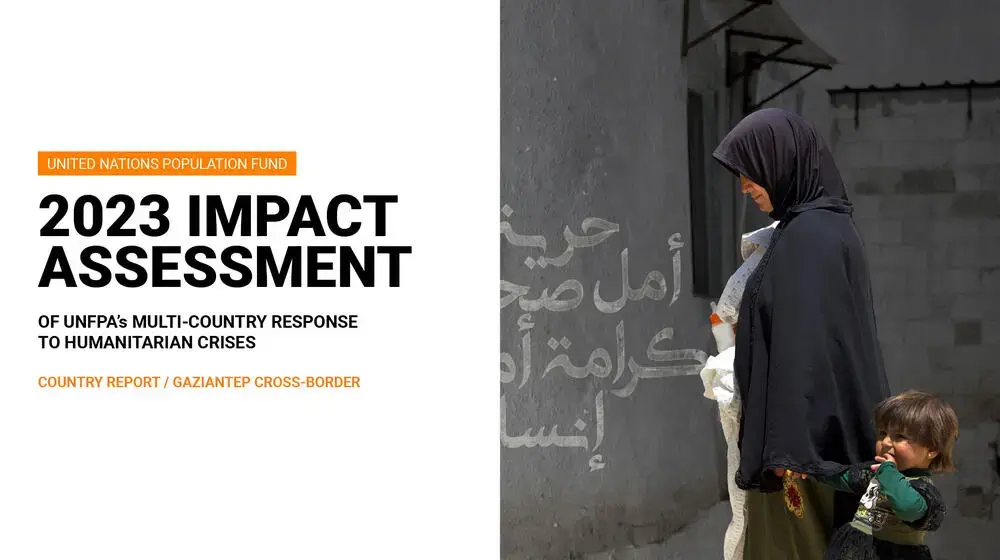The people of Gaza are enduring unimaginable suffering. As of 3 July, 37,953 Palestinians have been killed and 87,266 injured, according to the Palestinian Ministry of Health (MoH). They have been nearly entirely deprived of the means and resources necessary for food security, shelter, health, and livelihood. Approximately 1.9 million people have been displaced, often repeatedly, forced into tents, overcrowded shelters, or even on the streets, lacking the most basic necessities for dignified life and survival. Based on the accounts of individuals in Gaza, its residents are profoundly entrenched in a sense of helplessness, with many having little hope of returning home or seeing an end to this persistent conflict.
Women and adolescent girls, especially those displaced, widowed and girls who are unaccompanied/separated, continue to be the most at risk of GBV and other protection risks. Older women and those with a disability face additional risks and vulnerabilities including accessing the limited aid being distributed and being able to flee from land and air attacks.
Humanitarian aid has faced severe obstacles since October, including security risks, crossing point closures, and manmade bureaucratic hurdles that slow/stop the provision of life-saving assistance - including for SRH and GBV services. The breakdown of law and public order has exacerbated humanitarian challenges, leading to increased incidents of theft and violence in a significant security vacuum, endangering humanitarian workers and operations. Following the widespread destruction of Gaza’s essential infrastructure and food supply chain, the population now relies heavily on humanitarian food aid for its survival. According to the Integrated Food Security Phase Classification (IPC) report, around 96 per cent of Gaza’s population face crisis levels of hunger (IPC3), including an estimated 49,300 pregnant women. Over 745,000 people including 17,000 pregnant women are at emergency levels (IPC4), and 11,000 in catastrophic/famine conditions (IPC 5).
The conflict has intensified pre-existing levels of gender-based violence (GBV). Factors such as poverty, intra-family conflicts, negative coping mechanisms, and displacement have led to increased incidents of GBV including intimate partner violence, emotional violence, and sexual violence. Children are being compelled into arduous and risky tasks, like collecting water and food, exposing them to violence at distribution points and the pervasive danger of unexploded ordnance.
Palestinians in the West Bank including East Jerusalem are facing a severe escalation in violence. Since 7 October 2023, over 539 Palestinians have been killed and more than 5,420 injured in the West Bank, including East Jerusalem. Attacks on healthcare facilities and restrictions on the movement of people and ambulances are severely limiting access to essential health services - including impacting access to services for pregnant women and newborns. Those same movement restrictions also severely increase GBV risks and impact access and support to GBV survivors.
In June 2024, UNFPA supported the provision of essential reproductive health (RH) and GBV prevention and response services throughout the Gaza Strip and the West Bank. This included distributing essential life-saving SRH equipment, medical supplies and consumables and establishing two maternal health units for emergency obstetric care. Additionally, UNFPA supplied menstrual hygiene products to thousands of women and girls, supported mobile medical points and deployed sexual and reproductive health (SRH) teams to formal and non-formal shelters. GBV prevention efforts directly impacted 11,692 individuals, while psychosocial support sessions benefited 5,836 women, adolescents, and children. UNFPA supported youth-led community initiatives led by 800 young volunteers, enhancing social cohesion and addressing urgent community needs. Awareness sessions on sexual exploitation and abuse were also conducted, and remote counseling services were offered through the Shubbak il Shabab helpline.





